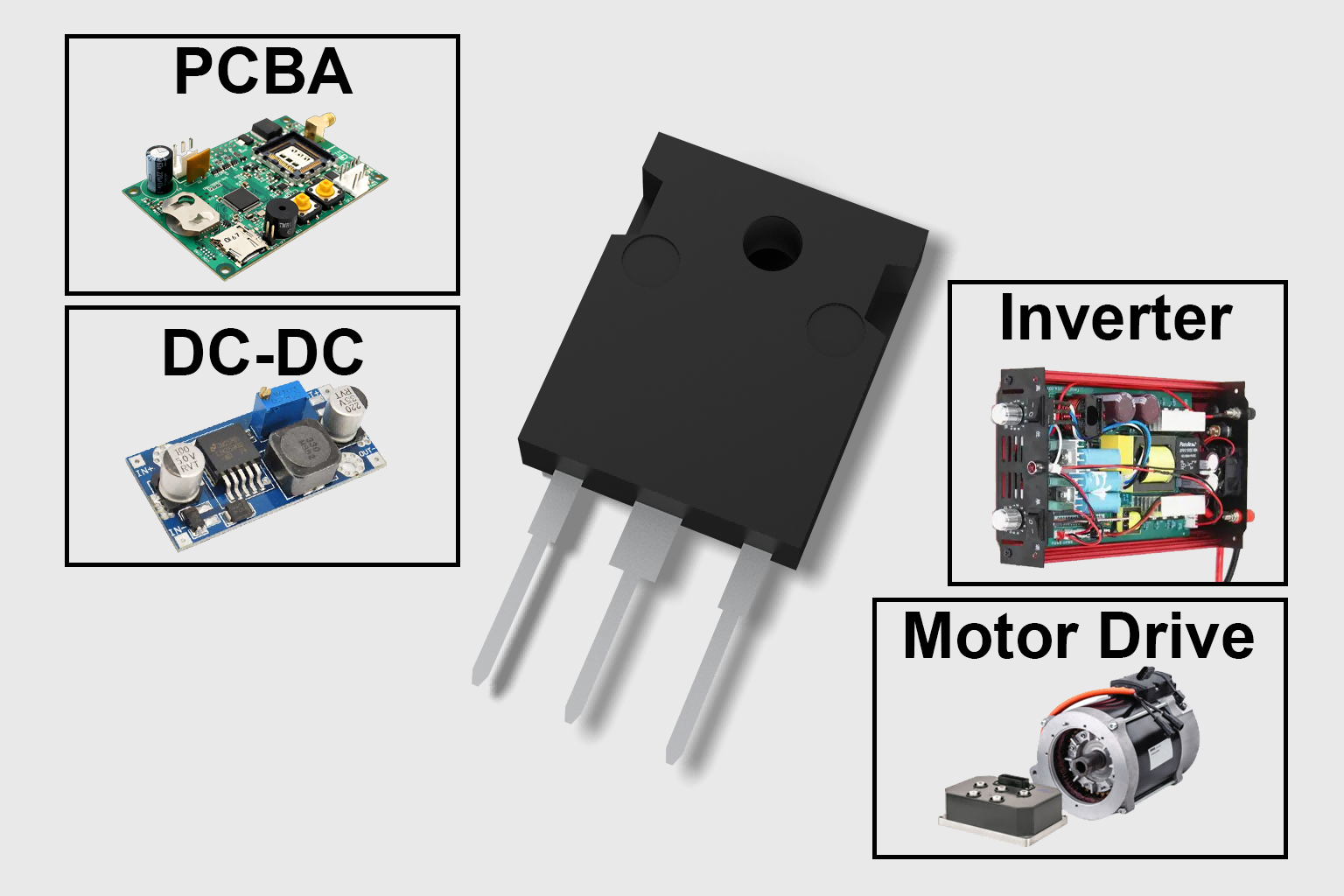Ultrafast Recovery Diodes (UFRDs) are used in power supply systems to improve the efficiency of switch-mode power supplies (SMPS) and DC-DC converters in the US and European markets. They are suitable for high-frequency applications, automotive, industrial equipment, and consumer electronics, helping to reduce switching losses and improve system stability.

I. The Core Role of Ultrafast Recovery Diodes in Power Systems
Ultrafast Recovery Diodes (UFRDs) are semiconductor devices designed for high-frequency applications. They feature fast reverse recovery times (Trr), low reverse recovery charges (Qrr), and low equivalent series resistance (ESR). These characteristics make them crucial in power systems, especially in applications like switch-mode power supplies (SMPS), DC-DC converters, inverters, and motor drive systems.
Switch-mode power supplies (SMPS) typically operate at high frequencies. UFRDs provide fast response to switching transitions, minimizing losses and ensuring system stability.
II. Application Case: Ultrafast Recovery Diodes in Switch-Mode Power Supplies
2.1 Challenges in Switch-Mode Power Supplies
In modern switch-mode power supplies (SMPS), the diode selection is crucial due to the high-frequency switching that occurs frequently. Traditional diodes have longer reverse recovery times at high frequencies, leading to increased switching losses and affecting overall efficiency and stability.
2.2 UFRD Application Solution
To improve system efficiency, engineers opt for ultrafast recovery diodes (e.g., MUR4100, MUR120), which feature reverse recovery times as low as 25ns. These diodes efficiently conduct and turn off at high frequencies, significantly reducing switching losses.
By using UFRDs, SMPS not only achieves better efficiency but also reduces heat generation, extending the lifespan of the power supply module.
III. Key Parameters of Ultrafast Recovery Diodes
When selecting ultrafast recovery diodes, the following key parameters must be considered:
|
Parameter |
Description |
Example Value |
|
Reverse Recovery Time (Trr) |
Time taken for the diode to transition from conducting to blocking |
25ns ~ 85ns |
|
Reverse Recovery Charge (Qrr) |
Total charge that flows through the diode during reverse recovery |
< 150nC |
|
Peak Forward Current (IF) |
Maximum current the diode can handle in the forward direction |
1A, 3A, 5A, etc. |
|
Maximum Reverse Voltage (VRRM) |
Maximum reverse voltage the diode can withstand |
50V ~ 1000V |
|
Forward Voltage (VF) |
Voltage drop across the diode when forward biased |
0.7V ~ 1.0V |
IV. Advantages and Technological Trends of Ultrafast Recovery Diodes
4.1 Fast Recovery Time and Low Loss
The biggest advantage of ultrafast recovery diodes lies in their extremely short reverse recovery time (Trr), which allows them to recover quickly in high-frequency switching and reduce reverse recovery losses.
4.2 Higher Frequency Response and Reliability
UFRDs are increasingly applied in systems requiring high-frequency response and stability, particularly in high-power power supplies and inverters.
4.3 Technological Evolution: Higher Efficiency and Smaller Packages
In the future, with advancements in material technology (such as Silicon Carbide (SiC) and Gallium Nitride (GaN)), ultrafast recovery diodes are expected to achieve higher switching frequencies, lower energy losses, and more compact package designs.
V.Conclusion
Ultrafast recovery diodes (UFRDs) play a critical role in power systems, thanks to their fast reverse recovery, low recovery charge, and low-loss characteristics. They are indispensable in high-frequency switch-mode power supplies, DC-DC converters, and inverters.
As technology advances, the use of UFRDs will expand, particularly in high-efficiency systems like electric vehicles, industrial automation, and consumer electronics.
Ultrafast Recovery Diodes | SMPS Power Supply Design | High-Efficiency Power Modules | DC-DC Converters | Inverter Protection | High-Frequency Switching Power Supplies